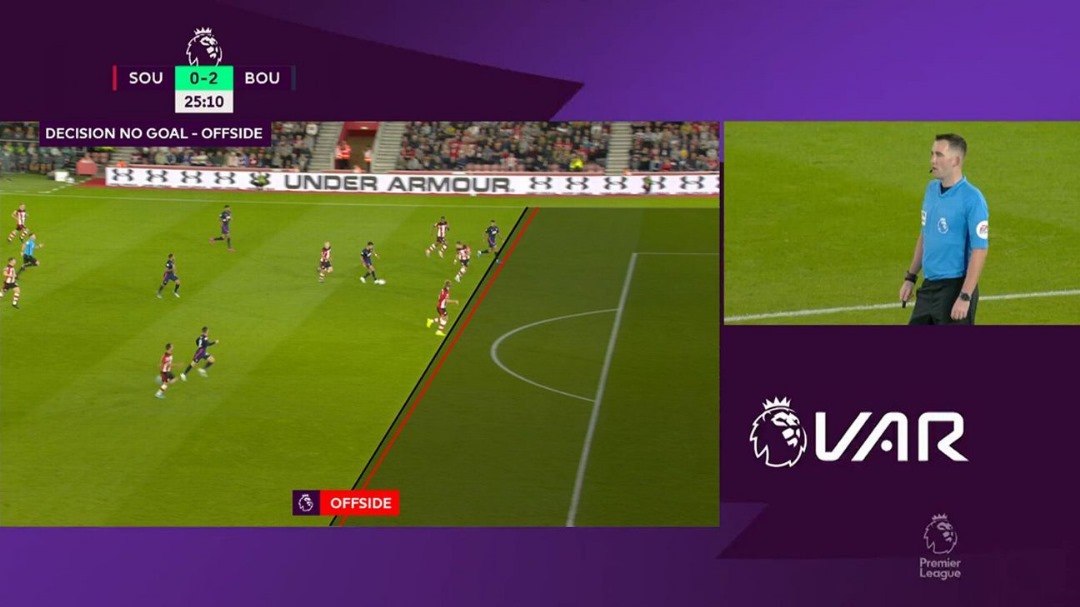By: Sulaiman Aruna Sesay
The Video Assistant Referee (VAR) is a match official in football who assists the referee by reviewing decisions using video footage and providing advice to the referee based on those reviews. The VAR was first introduced in the Total Energies Africa Cup of Nations on the 9th January 2022 when the host nation played against Burkina Faso. Since the introduction of the VAR, there have been a lot of positive and negative impacts in matches. Below are just few of my positive and negative impacts of the VAR in the Africa Cup of Nations:
One of the positive impacts of the VAR in the Africa Cup of Nations is that, it has improved accuracy in match officiating. In a sense, human errors were seen in most matches but since the inception of the VAR technology, it helps to make more accurate decisions and reduces the likelihood of human error. It is clear that mistakes are unavoidable but at the same time it should not be on a regular basis. That is why it (was/is) necessary to introduce the VAR technology in Africa continent.
In addition, transparency is another positive impact of introducing VAR in the Africa Cup of Nations (AFCON).The use of VAR (Video Assistant Referee) in the Africa Cup of Nations (AFCON) promotes transparency by providing a fair and impartial decision- making process. VAR technology allows referees to review crucial moments of the match, such as controversial goals, penalties, and red cards, and correct any mistakes made on the field. VAR’s implementation reduces the likelihood of human errors that could impact the outcome of a game, thereby increasing transparency by ensuring that the correct decisions are made. Transparency can also be seen when use of VAR assists in the monitoring of player’s behaviours during the game. The introduction of the VAR serves to increase transparency in decisions made during an AFCON game because referees because referee are held accountable for their actions. Players, coaches, and fans have access to relevant replay footage, which helps to minimize incorrect judgment calls in the game. VAR technology has also proved useful in identifying and sanctioning any off-ball incidents that may go unnoticed during the course of the game, promoting a sense of sportsmanship and fairness across all teams.
However, there are negative impacts as well in the introduction of the VAR in the Africa Cup of Nations. One of the negative impacts of VAR is that, it brings long delays in matches. The length of delays caused by VAR in the Africa Cup of Nations can vary depending on the complexity of the incident being reviewed and the efficiency of the VAR system and officials. Some reviews and decisions can take a few seconds, while others can take several minutes, causing significant disruptions to the flow of the game. In some cases, the delays can lead to frustration from players, coaches, and fans, especially if the incident being reviewed is not clear-cut or controversial. However, the goal of VAR is to get the decisions right, and sometimes this requires more time and deliberation.
Fast forward, implementation cost is also another negative impact of the introduction of VAR in the Africa Cup of Nations. Implementing VAR requires purchasing and installing the necessary equipment such as cameras, control rooms, and communication systems. This can be a significant financial burden, particularly for countries with limited resources. Additionally, there may be ongoing costs associated with maintaining and upgrading the technology, which can further strain budgets. These costs may have played a role in the decision not to include VAR in the tournament or may have impacted its effectiveness if it is to be used.
To crown it, the use of VAR in AFCON can improve the quality of the tournament by ensuring accurate and fair decisions, enhancing transparency, and keeping up with international football standard. Given that VAR has become standard practice in many major football leagues and competitions around the world, using it in AFCON helps keep the tournament current and competitive within the global football community.













